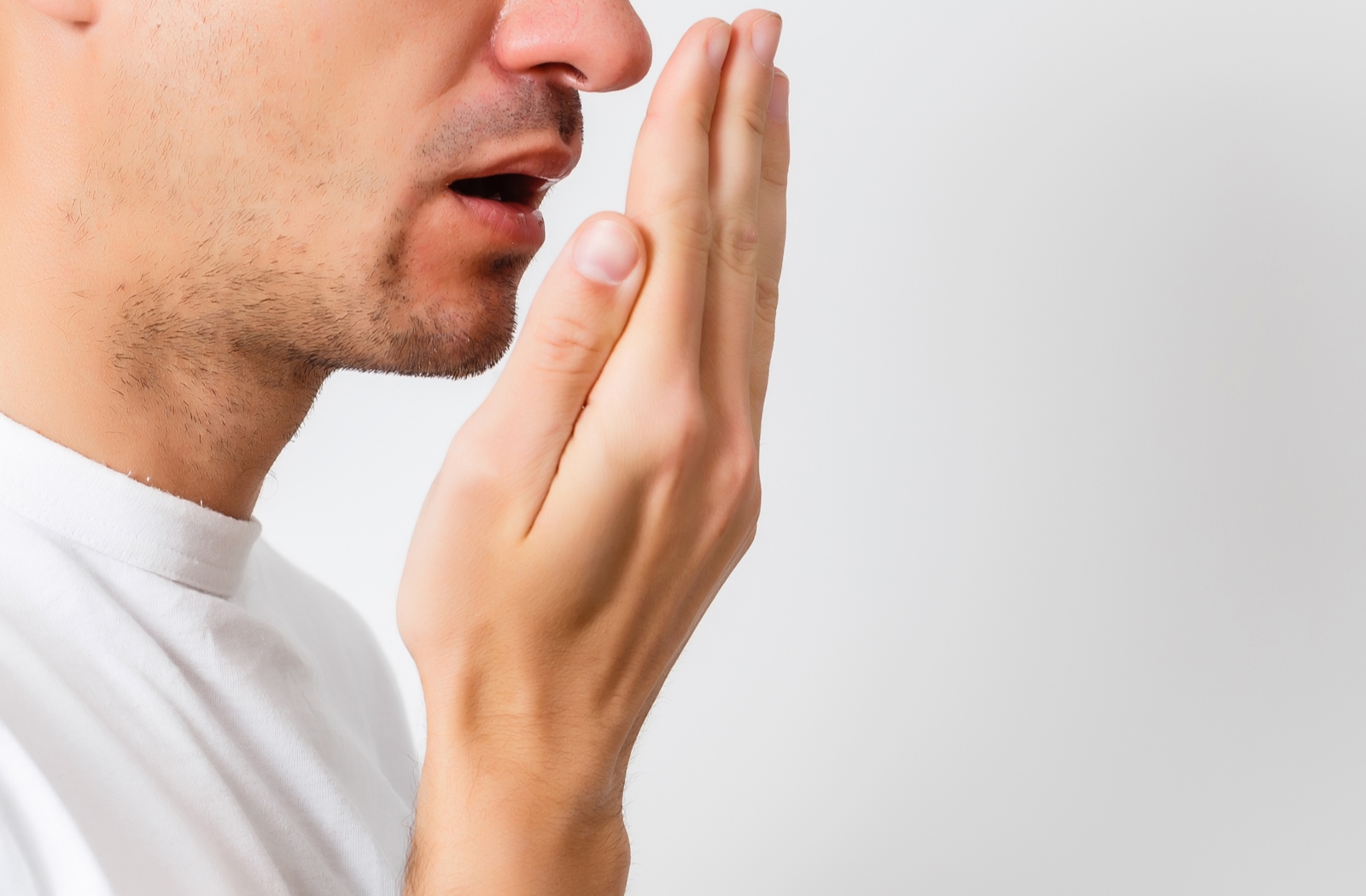Bad breath (halitosis) is a common problem affecting approximately 50% of adults at some point in their lives. This issue not only affects self-confidence and social interactions but may also be an indicator of underlying health problems. In this comprehensive guide, we will review the main causes of bad breath and the best medical and natural ways to treat it, in addition to tips for prevention.
Understanding the Causes of Bad Breath
Oral Causes
90% of bad breath cases originate from the mouth itself, and include:
- Bacterial buildup: Bacteria in the mouth release volatile sulfur compounds that cause bad odors.
- Poor oral hygiene: Not brushing and flossing regularly leads to the accumulation and decomposition of food debris.
- Gum and tooth infections: 60% of cases are related to gum infections.
- Dry mouth: Lack of saliva reduces the natural cleaning of the mouth.
- Tongue plaque buildup: The rough surface of the tongue retains bacteria and food particles.
Systemic Causes
Some health conditions may cause a distinctive breath odor:
- Stomach problems: Such as acid reflux or stomach ulcers.
- Kidney disease: Causes an ammonia-like odor.
- Diabetes: Breath may smell like acetone or fruit.
- Liver disease: A musty or sweaty foot-like odor.
- Respiratory infections: Such as sinusitis or tonsillitis.
Ways to Treat Bad Breath
Medical and Professional Treatment
- Visit the dentist: To check for cavities, gum infections, or tartar buildup that requires professional cleaning.
- Treat underlying medical causes: Such as controlling blood sugar for diabetics or treating acid reflux.
- Use medicated mouthwashes: Containing chlorhexidine or hydrogen peroxide.
- Treat dry mouth: Using saliva substitutes or medications that stimulate saliva production.
Home and Natural Remedies
Herbs and Spices
- Fennel seeds: Can be chewed or made into tea for their antibacterial properties.
- Cloves: Contain antiseptic substances; can be used for gargling or chewing.
- Cardamom: Rich in aromatic oils and the antiseptic compound cineole.
- Parsley: Contains chlorophyll, which reduces sulfur compounds.
- Thyme and coriander: Beneficial, especially if the odor is related to digestive problems.
Fruits and Vegetables
- Citrus fruits: Such as lemon and orange, stimulate saliva production.
- Apples: Help remove odors from foods like garlic and onions.
- Carrots and celery: Crunchy vegetables stimulate saliva and clean teeth.
- Pineapple: Its juice may help improve breath odor.
Natural Drinks and Products
- Green tea: Has antibacterial and antioxidant properties.
- Apple cider vinegar: Can be used as a mouthwash after diluting with water.
- Yogurt: Contains probiotics that reduce harmful bacteria.
- Baking soda: Used as a mouthwash to balance mouth acidity.
Tips for Preventing Bad Breath
Daily Oral Care
- Brush teeth: Twice a day for two minutes.
- Floss: Daily to remove food particles between teeth.
- Clean the tongue: Using a tongue scraper or toothbrush.
- Use mouthwash: Reaches areas the brush cannot.
- Clean dentures: Daily if you use them.
Lifestyle Adjustments
- Drink water: To keep the mouth moist and remove bacteria.
- Avoid smoking: Which causes dry mouth and increases bacteria.
- Chew sugar-free gum: To stimulate saliva production.
- Avoid strong-smelling foods: Such as garlic and onions.
- Eat regular meals: Skipping meals reduces saliva production.
When to Consult a Doctor?
It is advisable to visit the doctor in the following cases:
- Persistent odor despite good oral care.
- Tooth pain or gum bleeding.
- Other symptoms such as heartburn or abdominal pain.
- If the odor is distinctive (such as ammonia or acetone).
- History of chronic diseases such as diabetes or kidney disease.
Conclusion
Bad breath is a common problem with multiple solutions. Treatment begins with good oral and dental care, followed by the use of helpful natural remedies. If the problem persists, it may be a sign of an underlying health condition that requires medical intervention. Remember that prevention is always better than cure, so maintain a daily oral hygiene routine and regular visits to the dentist.



